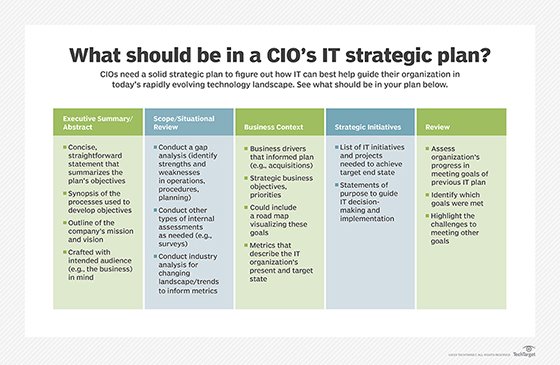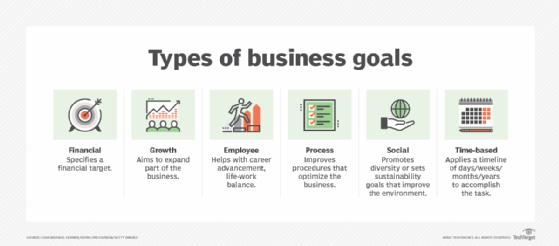business plan
What is a business plan?
A business plan is a formal document that outlines a company's objectives, strategies and financial forecasts, serving as a comprehensive roadmap for business growth and development.
Business plans are crucial, whether they're for a startup or an offshoot of an existing business. They help in strategizing the launch and growth of a business by providing direction and building a case to attract investment.
For startups, business plans are vital for securing funding from investors, banks or venture capitalists. For established companies, business plans aid in strategic planning, guiding long-term operations and achieving business goals.

Key components of a business plan
A business plan typically includes several standard sections that provide detailed information about different aspects of the business:
- Executive summary. The executive presentation offers a concise overview of the entire business plan, highlighting key points that are detailed in subsequent sections. It includes the business's mission statement, proposed model and basic information about the leadership team.
- Business description. This part elaborates on what the business does, its legal structure, its unique value proposition and the market needs it aims to fulfill.
- Market analysis. The market analysis section provides a detailed look at the industry, market environment, target audience and competitive landscape. This includes demographics, market size, market trends and an analysis of competitors.
- Organizational structure. This section outlines the company's organizational structure, detailing the roles and responsibilities of executives, the management team and departmental structures.
- Products or Services. This area describes the products or services offered by the company, including a thorough description of the product lifecycle, and any intellectual property or research and development activities.
- Marketing and sales strategy. This part of the plan outlines strategies for branding, marketing, sales approaches and customer acquisition. It describes how the product or service will be promoted to the target market.
- Funding request. For startups and businesses seeking funding, this section specifies the amount of funding needed, the proposed use of funds and the preferred financial arrangements.
- Financial projections. The financial section provides projections of the business's financial performance over the next three to five years, including forecasted income statements, balance sheets, cash flow statements and capital expenditure (Capex) budgets.
- Appendix. The appendix includes any additional information that supports the data included in the plan, such as resumes of the management team, legal agreements, technical specifications and any other relevant documents.

Creating and using a business plan
Developing a business plan involves conducting extensive market research, understanding the industry, defining clear objectives and setting achievable goals. It is crucial for business owners to regularly update their business plans to reflect the changing market conditions and the business's progress.
Beyond securing funding, a well-crafted business plan also serves as a tool for managing and steering a business toward success. It acts as a framework within which the business operates and a baseline against which its performance can be measured.
Setting detailed business goals that come with deadlines motivates employees and can keep your company on track. See how to set business goals with this step-by-step guide.
